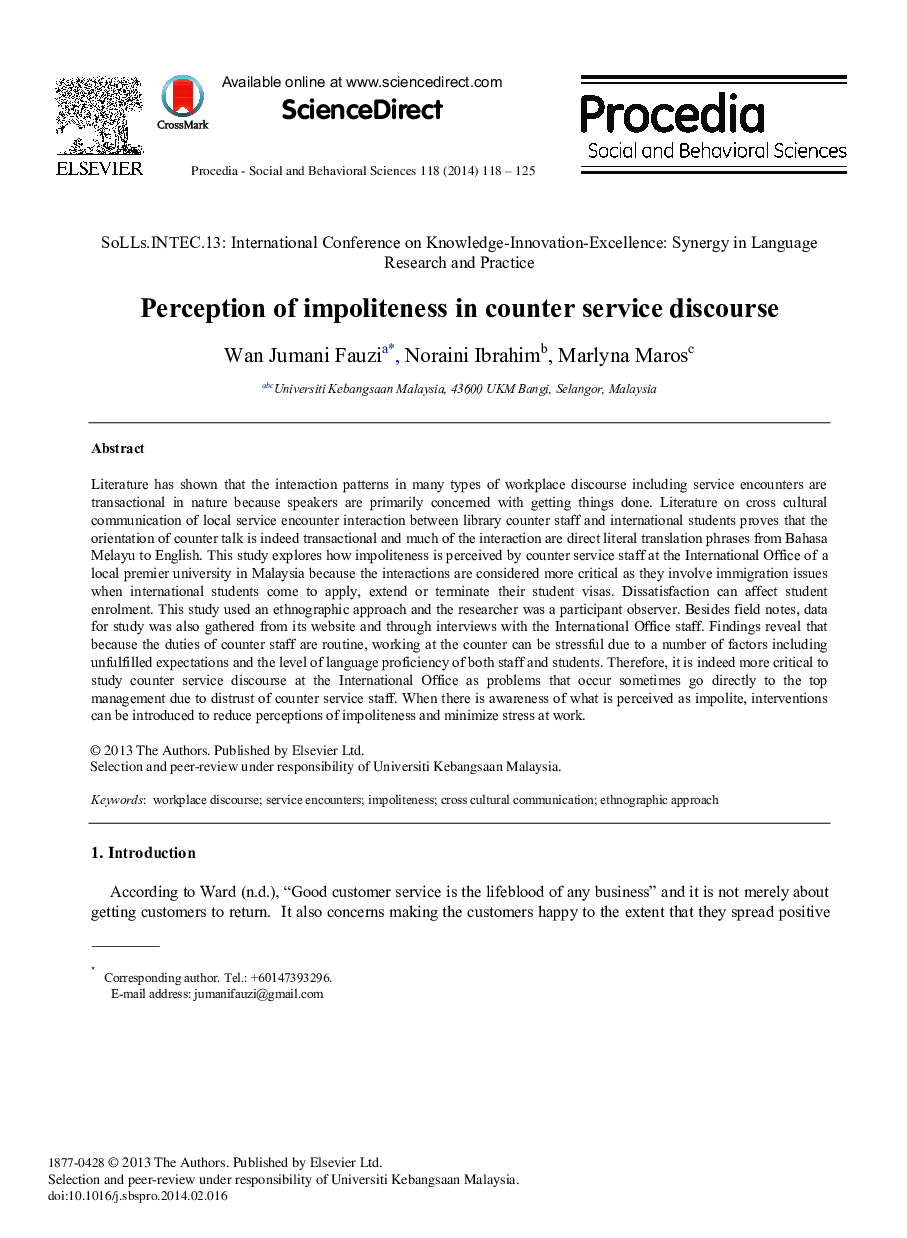| کد مقاله | کد نشریه | سال انتشار | مقاله انگلیسی | نسخه تمام متن |
|---|---|---|---|---|
| 1115717 | 1488441 | 2014 | 8 صفحه PDF | دانلود رایگان |
Literature has shown that the interaction patterns in many types of workplace discourse including service encounters are transactional in nature because speakers are primarily concerned with getting things done. Literature on cross cultural communication of local service encounter interaction between library counter staff and international students proves that the orientation of counter talk is indeed transactional and much of the interaction are direct literal translation phrases from Bahasa Melayu to English. This study explores how impoliteness is perceived by counter service staff at the International Office of a local premier university in Malaysia because the interactions are considered more critical as they involve immigration issues when international students come to apply, extend or terminate their student visas. Dissatisfaction can affect student enrolment. This study used an ethnographic approach and the researcher was a participant observer. Besides field notes, data for study was also gathered from its website and through interviews with the International Office staff. Findings reveal that because the duties of counter staff are routine, working at the counter can be stressful due to a number of factors including unfulfilled expectations and the level of language proficiency of both staff and students. Therefore, it is indeed more critical to study counter service discourse at the International Office as problems that occur sometimes go directly to the top management due to distrust of counter service staff. When there is awareness of what is perceived as impolite, interventions can be introduced to reduce perceptions of impoliteness and minimize stress at work.
Journal: Procedia - Social and Behavioral Sciences - Volume 118, 19 March 2014, Pages 118-125
